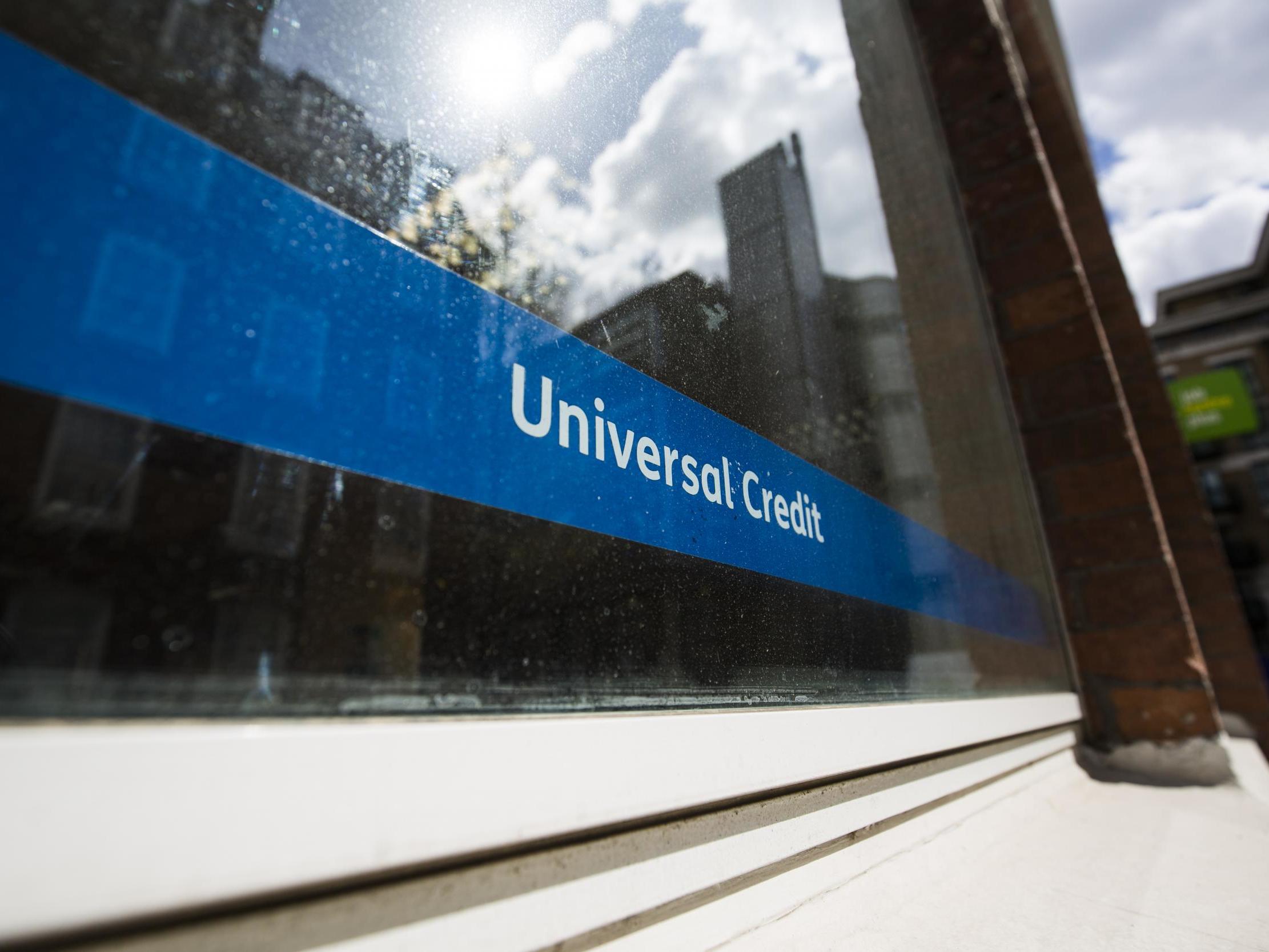Universal Credit failing millions as current design ‘punishes poorest’, says Lords report
'It has led to an unprecedented number of people relying on food banks and not being able to pay their rent'

Your support helps us to tell the story
From reproductive rights to climate change to Big Tech, The Independent is on the ground when the story is developing. Whether it's investigating the financials of Elon Musk's pro-Trump PAC or producing our latest documentary, 'The A Word', which shines a light on the American women fighting for reproductive rights, we know how important it is to parse out the facts from the messaging.
At such a critical moment in US history, we need reporters on the ground. Your donation allows us to keep sending journalists to speak to both sides of the story.
The Independent is trusted by Americans across the entire political spectrum. And unlike many other quality news outlets, we choose not to lock Americans out of our reporting and analysis with paywalls. We believe quality journalism should be available to everyone, paid for by those who can afford it.
Your support makes all the difference.Universal credit “punishes the poorest” and its current design is responsible for soaring rent arrears and unprecedented demand for food banks, according to a new report into the welfare system.
Publishing the findings of their inquiry, peers on the cross-party Lords Economic Affairs Committee said millions of claimants are being failed and called on ministers to urgently inject investment into the scheme.
The scathing report argues that while the contentious system should not be replaced – as it would risk causing severe disruption – substantial reforms are needed to it “fit for purpose”.
“Change cannot come soon enough,” they said. “The economic effects of the Covid-19 pandemic have resulted in many more people claiming universal credit and millions more are expected in the months ahead.”
Stating that the UK has “some of the most punitive sanctions in the world” regarding the administration of welfare, the Lords report added: “There is limited evidence that they have a positive effect.
“Removing people’s main source of support for extended periods risks pushing them into extreme poverty, indebtedness and reliance on food banks. We recommend that the government publish an evaluation of the impact of conditionality and sanctions on mental health and wellbeing.”
The five-week wait for claimants to receive their initial payment under the scheme, peers said, “entrenches debt, increases extreme poverty and harms vulnerable groups disproportionately”.
The report also urges the Department for Work and Pensions to introduce a non-repayable, two-week initial grant for all those claiming universal credit to provide security and mitigate issues in relation to housing costs.
On funding, the peers said a catch-up is “needed urgently following the substantial cuts to social security over the last decade”.
“The temporary increase in the standard allowance in response to the Covid-19 pandemic is welcome, considering the evidence that we received which set out the inadequacy of universal credit and its impact on poverty levels,” the report added.
“The government should commit immediately to making the increase in the standard allowance permanently. Universal credit should be set at a level that provides claimants with dignity and security.”
Chair of the Economic Affairs Committee Lord Forsyth of Drumlean, a Conservative peer, said that while most agree with original aims of universal credit, in its current form “it fails to provide a dependable safety net”.
“It has led to an unprecedented number of people relying on food banks and not being able to pay their rent. The mechanics of universal credit do not reflect the reality of people’s lives.”
He added: “It is designed around an idealised claimant and rigid, inflexible features of the system are harming a range of claimant groups, including women, disabled people and the vulnerable.
“The five-week wait for a first payment must be replaced by a non-repayable two-week grant to all claimants. The monthly payment calculations which can result in big fluctuations to claimants’ incomes should be fixed for three months. Historical tax credit debt needs to be written off.
“The punitive nature of universal credit has not worked. It punishes the poorest by taking away their sole source of income for minor infractions. It needs rebalancing, and more carrot and less stick, particularly as large numbers of claimants will have ended up on it because of events completely out of their control.”
Jonathan Reynolds, the shadow work and pensions, said: “Sadly, this report confirms what many have known for a long time – universal credit is simply not working. There is a clear consensus that the system is not delivering on its objectives and is instead pushing people further into poverty and debt.
“Everyone can see the universal credit is a broken, overly punitive system entrenching working parents and their children in poverty. It’s time the government started listening and stopped doggedly pursuing a failed agenda.”
A spokesperson for the DWP said: “The case for universal credit has never been stronger. The system defied its critics in unprecedented and unforeseeable circumstances, processing more than 3.2m new claims at pace since mid-March and paying more than a million advances worth hundreds of millions of pounds to those in urgent need within days.
“We remain committed to supporting the most vulnerable in society, which is why we currently spend over £95 billion a year on the benefits system. We’ve also increased the universal credit standard allowance by up to £1,040 a year, as part of a package of welfare measures worth over £9.3 billion.
“We welcome the acknowledgement by the committee that universal credit is here to stay and we will consider their recommendations in detail.”
Join our commenting forum
Join thought-provoking conversations, follow other Independent readers and see their replies
0Comments